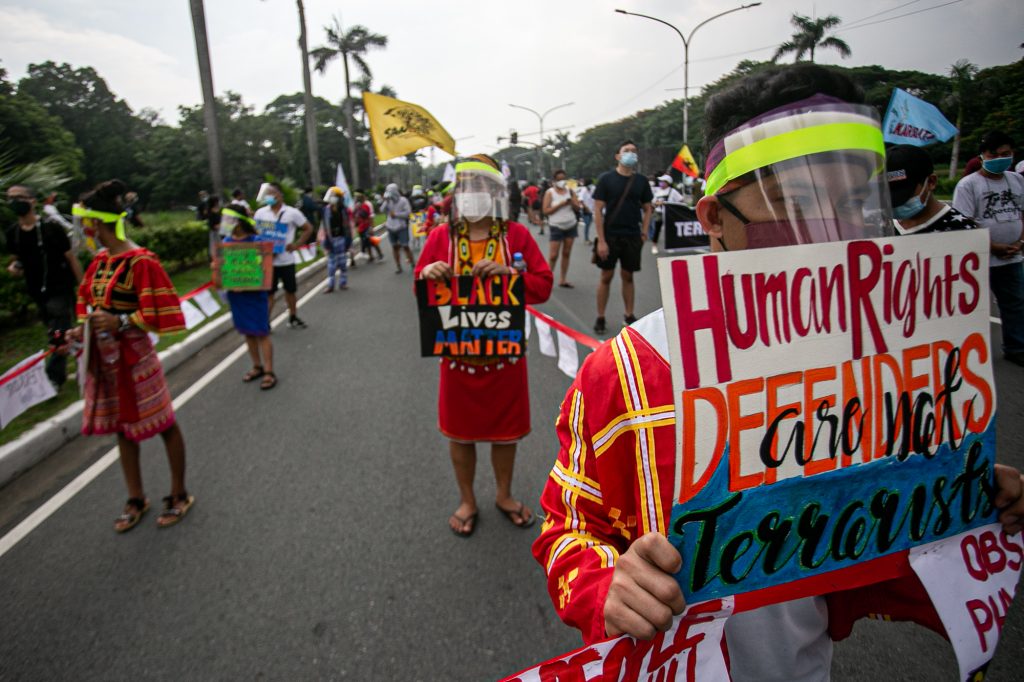
A global indigenous peoples’ network raised the alarm over what it described as “escalating” human rights abuses against tribal communities in the Philippines.
The Indigenous Peoples Rights International condemned what it called as a “series of attacks” allegedly perpetrated by state forces in the country’s various regions.
On Wednesday, September 2, the group called for a probe into the alleged bombing of an Aeta community in Zambales province, the killing of a Manobo woman in Mindanao, and the attack on a tribal school.
The group urged the UN Human Rights Council “to immediately establish an independent body” that will investigate the alleged abuses.
Joan Carling, co-director of IPRI, said they are “enraged” by the series of attacks against tribal people in the Philippines.
“These unabated human rights violations, including killings, criminalization, harassment, and destruction of properties of indigenous peoples must end,” she said in a statement.
Carling said these “acts of barbarism, discrimination, and gross violation of human rights” are not isolated cases.
She described it as “concerted actions aimed at silencing, through fear, intimidation, and threats, the legitimate struggles of indigenous peoples communities to defend their ancestral lands.”
On August 21, more than 600 members of the Aeta tribe in San Marcelino town in Zambales province fled their village after the Philippine Army allegedly dropped bombs on their communities.
Human rights groups also received reports of alleged harassment and physical assault on members of the tribe.
In Mindanao, unidentified gunmen shot and killed Manobo tribal leader Bae Merlin Ansabo Celis in Magpet town, North Cotabato province, on August 23.
In Bukidnon province, a tribal school run by the Mindanao Interfaith Services Foundation Inc. was reportedly destroyed by members of a paramilitary group on August 26.
Victoria Tauli Corpuz, former UN Special Rapporteur on the Rights of Indigenous Peoples and IPRI co-director, called on the Philippine government “to protect the rights of indigenous peoples and hold the violators of these rights into account.”
She said authorities must “investigate and identify” the perpetrators, adding that the “culture of impunity will continue to persist” in the country if assailants are not held accountable.
The group echoed the recommendations of the UN Office of the High Commissioner for Human Rights for the Philippine government “to fully implement the Indigenous Peoples Rights Act” and “to ensure respect for the principle of the Free and Prior and Informed Consent of Indigenous Peoples.”
Source: Licas Philippines
0 Comments